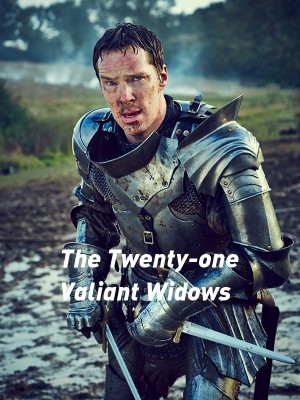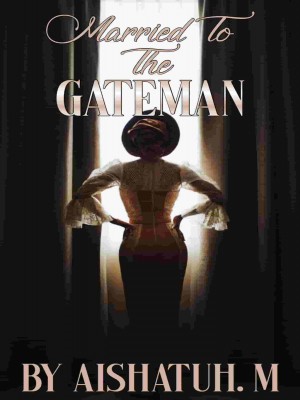
The Twenty-one Valiant Widows
Kept in mournful confident for fourteen and four moons, The widow pines away In regretful melancholy, Her courage melting into thin air Like the empty promises of Her husband's next of kin.... In droplets She releases her bottled worries In the quietness of abject solitude Like a sigh into the air..... Behind the silk cotton tree She slips, Her matted hair tangling And her black robe shrinking Disappointedly on her bosom.... As the horizon closes On the bloody eye of the receding sun, She descends the slope Of the lonely forest path Leading onto the lonely village stream To fetch a pot of water For her lonely evening meal.... A slow rhythmic sound of lamentation Shaking her dry crinkled lips.
The night Ofiso died, nine full moons ago, a shooting star zoomed down the empty sky in a long line of fire; the people of Kufi heard the bought of an iroko.
The meaning of all these were very clear to Rose; Ofiso had been accepted by his Maker. His spirit had gone straight to Heaven, not missing the way!
Rose's eyes twinkled. She did not know whether to begin to shed tears of sorrow or tears of gratitude. But because her husband had left her alone to the wicked world, just like that, and without a word of farewell; she quickly made a choice; It must be tears of sorrow. Sorrow from the abyss of a troubled heart! Rose's face instantly was shadowed in deep misery, and the whole world imediately went blank before her eyes.
She made efforts to console herself, even as the distrustful eyes of "sympathisers glared from helms of garments, secretly castigating. Rose wondered....
Her husband certainly did not die a disgraceful death.
For this, she told herself, she must be thankful! Ofiso did not die an abominable death. No, He did not drink poison out of frustration with life, and he did not fall from the slippery chips of the palmtree on a rainy day. He was not struck by lightning, not bitten by a cobra and not crushed to death between the falling walls of the village mud buildings. Ofiso did not hang himself with a rope on the kolanut tree like the Stick of firewood cutter whose dead body the people had cut down and had buried at the iloro with indecent haste, inside a shallow, nameless grave filled with loose soil and porous sand. No suicide for Ofiso. He lived like a man, and died like a man. Rose was thankful.
But the tears now rolled in torrents down her face, streaming into the corner of her mouth and tasting like salt. The temporariness of man's passage on earth was a certainty! Rose, at once, surrendered herself to the design of destiny and to the agony of, what seemed to her, an irreplaceable loss.
She was the last human being Ofiso saw when his eyes were finally closing up in death. What a great honour! Her husband gave her that last-minute parting stare... quick, penetrating, and meaningful...There was an expression of hurt and disappointment in Ofiso dying black eyes. Rose got the message. And with all her heart she tried to communicate to Ofiso, not only sorrow and solidarity, but also deep apology for all the wrongs she probably had committed. Something told her she must have offended her husband deeply, to be shot at and be wounded with such strange, reproachful glare. She was just ready now to beg, ready to atone, and ready to apologise!.The painful finality of Ofiso's last minutes on earth rang in Rose's head, splitting her brain with remembered images.
She stumbled as she stepped out into the sun to pick up her head-tie which had fallen on the ground during the course of prolonged wailing. She was scanned by mourners in all directions. All eyes followed every footsteps she took with hostile closeness.
And all ears listened, ready to catch her every word in a set-trap. These, obviously, were not people merely sitting in silent sympathy in the presence of death, but people who were fully bent on humiliating her and destroying her reputation.
These were lonely days indeed. Rose felt thoroughly abandoned, like a stone at the bottom of a lake. Silence sank like sad music in her heart, and descended on her soul in pitiable layers. One by one, the mourners had left, leaving her to sulk the anguish of a private sorrow, secretly. Then followed, after a few days, the extended family's mockery heaped on her like the strange showers of a January rain..... And now, loneliness....... Rose's days dragged lazily on, in a haze of solitude and lonesomeness. She had never learnt to be able to be alone in her life!. But loneliness had now pitched a tent, and had become, to her, a deep black colour like the night; eternal night, thick and tangible, with no glimmer of light and no trace of life; dark lonely days and lonely nights-unending, sombre, gloomy and desolate-where only the winds played freely alone in the air.
Rose's two daughters, who used to keep her company had long been given away in marriage; Linda to Miguel, the richest business man from China, who bought the biggestest plot of land with the highest cost; Wura to the blacksmith at Apon who owned a granite anvil, and two bellows of baked clay-the 'lron Man' as they called him, with the fiery furnace". Wura's husband was nicknamed Sokoti, the 'Blacksmith of Heaven," welding gongs and salvaging scraps of metals to create shovel and axes of local design, to earn a living.
Rose's only son, Adrian, was an expert furniture carpenter who now lived in Texas, far away from his mother. ln town, Adrian had become more than just a carpenter. He had become urbanised, as a result of his long stay. And now, he hardly remembered the little village of his birth. Kufi, to him, was becoming a lonely settlement at the very end of the earth; a small un-mapped hamlet inhabited by a handful of people, where time was measured by the length of shadows, the movement of the sun, the direction of the wind, and the throaty call of the cock with the big red comb; a village where silence reigned, broken only by the hooting of owl, the coo-coo of the dove, and the yapping of wild dogs.
Now alone in the world, Rose was left to prepare heaps and raise crops, all by herself-labouring hour after hour, under the sweltering heat. She had to cut the bushes around the family compound, and appeal to the village men, especially to Uncle Martin, Ofiso's bosom friend, to assist in mending the leaking roof and rebuilding the falling walls of her mud house. It was her habit to trek to distant farms, her husband's farms, to uproot cassava tubers to feed her goats with. She would linger all day, alone in the sun, to dry maize grains for an evening meal of delicious porridge and melon stew. But Rose's main job was dyeing taffeta cloths in indigo solution at her yard to secure ready cash. These taffeta products she would carry inside a large wooden tray to the market at Sagbe, three miles away for a sale to willing customers.
"Come Papirryn," Rose used to shout, in the heat and excitement of work, on her little grandchild staying with her. "Right now we have to begin folding these taffeta cloths. The next market day is only two days away. Take a broom and sweep this dirty floor. spread the mat. Bring out our two mallets. Let's begin to beat the cloths into pleats. Very fine pleats, you know, so that customer at Sagbe market will have nowhere else to go, than our stall, to get the best taffeta."
After a long spell of heavy pounding, Rose would slowly raise up her head and smile, catching the tired face of her grandchild, and the small drops of sweat that had begun to gather over the little boy's brow......
"There you are, Papirryn," she would tease," At your age, l could swing the mallet, non-stop, from cockcrow to cockroost, all through beating nonsense out of taffeta cloths, never getting tired. But, see how weary you have become now-you indolent creature!. When will you learn not to be lazy?.
"Lazy boys go to the farm only to watch the vulture dozing on the baobob. They waste time playing with the cattle egret roosting on the silk cotton tree at the approach of rain, and the giant crab digging it's abode on the bed of the murky village stream. Lazy boys are many in this
village and you are one of them. you are their leader. See now, Papirryn, you swing your mallet over the taffeta as if there is no more strength left in you, and your tongue crawls out of your small mouth!.
Just let me finish folding this taffeta and reach for my long cane at the corner of the room. Wam, wam, the cane will circle and it's marks will show around the narrow band of your neck, and on the naked column of your back skin. l will crack the whip down in terrific speed; and when l get tired, Papirryn, the whip will drip in slow motion around your tiny body. l will make you howl like a dog kicked in the stomach, for stealing the only bone inside the soup pot."
"No, Mama! Don't beat me," Papirryn always pleaded. "Please, don't kick me like a dog. l am not going to be lazy anymore. l swear, Mama. Being lazy is not good for a small boy like me..... Tomorrow Mama, I'll beat ten taffeta pleats and, day after, ten pleats, to please you. Next week Mama, I'll beat forty, all in one day."
"Beat forty taffeta today, Papirryn, lazy boy! Not tomorrow, and not next week. Never leave till tomorrow what be done today. Today is sure, Papirryn. But nobody knows what tommorow will bring."
"Alright, Mama......"
And Papirryn would resume beating the taffeta with his small mallet-very furiously, playfully counting the number game on each stroke of the mallet;.
"One resembles one," Papirryn's sharp little voice would rise and pierce the bamboo rafters on the roof of the house;.
One and one are identical twin babies of Ogunremi village who, in later years, grew up to legendary fame and prosperity.
Two is like two children of the same parents, eating meals inside the same bowl, and greedily licking okra soup clean and clear, from their fingers.
Three is the dirty calabash on my grandmother's wooden rack, which needs to be washed thoroughly, and be properly scrubbed before the next market day.
Four is the crooked footpath, leading out of peregun, to the neighbouring villages of Oteda, Lelero, Larin and Labua.
Five carries a mortar on his tender neck, with hot yam inside, but no pestle to pound it with.
Six is tiele the lifeless body of the robber, struck dead by lightning at the village gate during a night storm.
Seven is the kongo, beating a slow melody on the round face of the talking drum on a wedding day.
Eight is the pregnant woman of Yege, who delivered her twin babies alone by herself at the road junction between Waari and Elewuji on a sunny day.
Rose would watch her grandchild with great amusement, a pleasant smile hovering over her face.
"Go on Papirryn," she always urged. "Go on playing the number game with your mallet. Go on beating a steady tempo on the taffeta cloth. That's one sure way to remove boredom, and one way to make your work lighter. Don't stop, Papirryn, until you will get to number one hundred. Make sure your hand moves faster than your tongue.... Many years ago at Adeyipo, when l was a little child like you, Papirryn, l did just that; counting and counting; pounding and counting. l would never stop pounding until l had counted up to three hundred on my mallet, and beaten sixty taffeta pleats in just one day!
"Work was music to us, Papirryn. We would spread out taffeta with laughing eyes and allow the joy of work to radiate on our countenance, all along singing merrily."
The sweet memory of childhood days came crowding back to Rose, and she enthusiastically took over the chanting of the number game from Papirryn, her eyes half- closed, her teeth flashing;
Nine is the old wine tapper of Lakinde, selling ketembe of fresh palmwine on credit to customers at Oyedeji market.
Ten is the dance arena at the back of Ajipa village where young maidens wriggle beaded hips to the delightful rhythm of the talking drum, to celebrate the feast of Ayan-Agalu.
Eleven is the open jaw of the mad hyena, laughing Kuseela farmers to scorn in the season of poor harvest.
Twelve is the mighty eagle bird neatly sweeping the dirty Omiyo sky with his umbrella wings.
Thirteen is the dark lane in front of the sacred grove at Kange, in the night of the dreaded Oro festival.
Fourteen is a group of villages-huddies of mud dwellings, joined by narrow forest paths and shaded by the slender molepe.
Fifteen is that big jug of water under the tree shade, providing cool, refreshing drink for weary travellers and wayfarers on a long journey.
"Yes, together let's go on counting now, Papirryn, from sixteen. Let's sing along and count. Together let's go on pounding, furiously, and be drenched in perspiration....Come on Papirryn! let's get intoxicated with work. Let the tissues on our strong arms stand up like worms on our skin as we pound away at the taffeta."
For Rose, it was now work, work and work a workaholic! The will to survive was there, putting determination into her bones and vigour into her nerves...And gradually, she began to accustom herself to the hard fact that she really was a widow...
To Be Continued.
You may also like

Married To The Gateman
Aishatuh M

Strange Love
Jacqui

The Alpha's Companion
eGlobal Publishing



